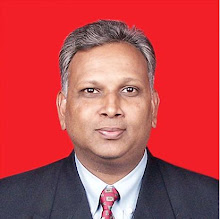Pune spreads power of innovation; ensures 24x7 supply
Gayatri Verma
As a corporate social responsibility initiative, companies have been asked to use their generators and reduce load on the grid
New Delhi, August 3: The country may be reeling under severe power shortage, especially with deficit monsoon, but Pune, an industrial city in Maharashtra, has quietly and innovatively structured between its stakeholders — consumers, industry and the state — a deal to provide power 24x7.
As it happens anywhere else in the state, Pune’s 10 lakh consumers used to face load shedding and power cuts when demand peaks. The industry runs large-scale diesel generators during shortage.
A closer analysis of the usage pattern by the Confederation of Indian Industry’s Pune branch showed that if some 30 big companies operate their generators when demand peaks in the day for 2-4 hours, there would be enough power to meet the entire city's needs. “These 30 companies’ generators produced about 80-90 MWs. As a corporate social responsibility (CSR) initiative, we asked the companies to use their generators, thereby reducing the load on the grid during shortage hours,” said Pradeep Bhargava, Chairman, CII-Pune region.
There was a catch here though. While electricity bought from the grid costs Rs 5 per unit, the cost running diesel generators was more than double at Rs 11 per unit. To get the industry on board, it had to be compensated for an increase in operating costs that totalled Rs 12-15 crore a month.
The CII and the Maharashtra State Regulatory Commission (MSRC) decided to address the issue by directly approaching the consumers through three rounds of public hearings attended by NGOs, civic societies, hospitals and other interest groups. For 24-hour power supply, they could hardly refuse paying a slightly higher price.
Pune's demographic profile showed there were 10 lakh consumers with a bulk or 7 lakh of them using only 300 units or less of electricity a month. The remaining 3 lakh consumed nearly 80 per cent of the electricity generated. The CII and the MSRC calculated that if only these 3 lakh shared the increase in cost, they would have to pay only 43 paise per unit more over the excess of 300 units of electricity.
MSRC began to collect this extra amount from the consumers and when there was a shortage, it would note the readings from meters placed across the city. The industry would be compensated for the cost of operating diesel generators from this kitty. While the ball was set rolling in 2004, it took two years till June 2006 for the idea to fructify under MSRC Chairman Pramod Deo. For the next two years, Pune enjoyed uninterrupted power supply.
Over time though, demand increased exponentially. The model couldn't keep pace with it despite the extra money collected from the corpus of Rs 15 crore a month. So, the Maharashtra State Electricity Distribution Co. Ltd. (MSED), responsible for distributing power in the city, began to buy expensive power from other states. But, clearly, other cities would cry foul since MSED was not the sole distributor for Pune, but for the entire state.
Deo explains: "We were not told that the expensive power was being bought and supplied only to Pune. Had there been a separate distribution license for Pune alone as is there for Mumbai, it is permissible. But, MSED is the distributor for the entire state. It has to share power equitably and hence cannot be selective."
While the Pune model has been extended to Thane and New Bombay, implementing it across the state will be a challenge since it works only in places where losses are low and recovery is close to 100 per cent. Besides, a sharp increase in the demand-supply gap from the usual 1,000 MWs to nearly 5,500 MWs has brought electricity generation in large parts of
But Bhargava is optimistic. "The problem lies not in model, but the country's failure in power generation. Moreover, neighbouring states do not have extra power for sale."

No comments:
Post a Comment